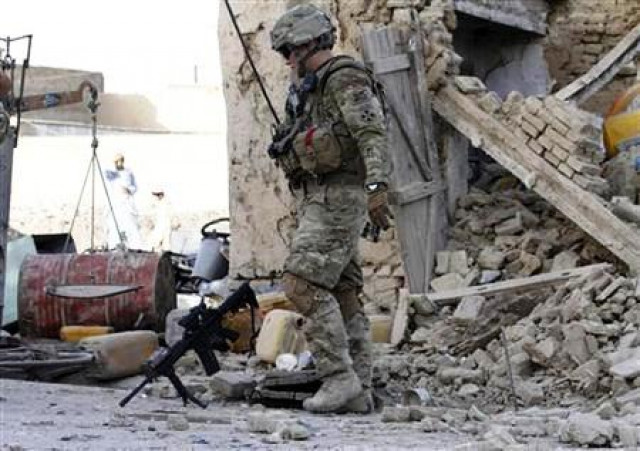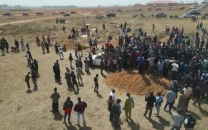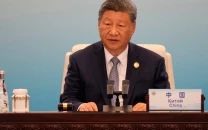Exit plan: Afghanistan needs upto $7 billion sustenance for a decade
More than 90 per cent of Afghanistan's $17.1 billion national budget comes from foreign donations.

In the run-up to a conference with donors in Tokyo, the government repeated a long-standing call for foreign assistance to be routed through Afghan government entities rather than international organisations, governor Noorullah Delawari said.
That could complicate discussions with foreign backers who are worried about misuse of funds.
More than 90 per cent of Afghanistan's $17.1 billion national budget comes from foreign donations but the economic crisis in Europe, shrinking budgets in the United States and voters weary of the nearly 11-year war, that assistance has looked in peril.
"I have heard from Afghan government ministers, somewhere from 6 to 9 billion assistance is required. I think, I see it at about $6-7 billion a year without military, it's just economic assistance, that should help us to go over, and continue our economic growth," Delawari said in an interview.
The World Bank last November warned that Afghanistan will suffer a recession in 2014 and beyond after foreign troops leave and aid is cut back substantially. It forecast a $7 billion deficit in the national budget each year through 2021.
Delawari said Afghanistan had made headway since 2001 and the economy was expected to expand 7.4 percent this year because of a good agriculture crop, but it was hard to see aid vanishing because the country was not yet out of the woods.
"I think the way it is, on the same basis Afghanistan received assistance during the past 10 years that will continue because the underlying problems have not been changed. Terrorism, those issues are still there."
Landlocked Afghanistan is hoping that its underground reserves of copper, iron ore and oil will help make up some of the shortfall, but Delawari said the revenues from the extractive industries were "five to 10 years away if not more".
Struggling
At a NATO summit last month in Chicago where allied nations set an irreversible course out of Afghanistan, the United States failed to pin down commitments for the rapidly expanding Afghan security forces that are charged with the responsibility of ensuring the country does not slip into civil war once foreign forces leave.
Afghanistan's foreign backers are next meeting in Tokyo in July to secure firm commitments for financial, development and security assistance for the country beyond 2014.
Delawari said delegates will negotiate details of the funding including Afghanistan's demand that the money be given to government bodies instead of routing it through foreign aid organisations which Kabul says gives it more legitimacy.
Fraud and corruption have been a top concern and earlier this year Britain's aid watchdog called on the government in London to tighten its oversight of the aid program in Afghanistan.
In December, a survey by Berlin-based graft watchdog Transparency International rated Afghanistan one of the world's most corrupt countries, ranked equally with Myanmar, and only slightly cleaner than North Korea and Somalia.
"If we curb misuse of foreign aid or in other words effective use of foreign aid, that will keep the economy going," Delawari said.



















COMMENTS
Comments are moderated and generally will be posted if they are on-topic and not abusive.
For more information, please see our Comments FAQ